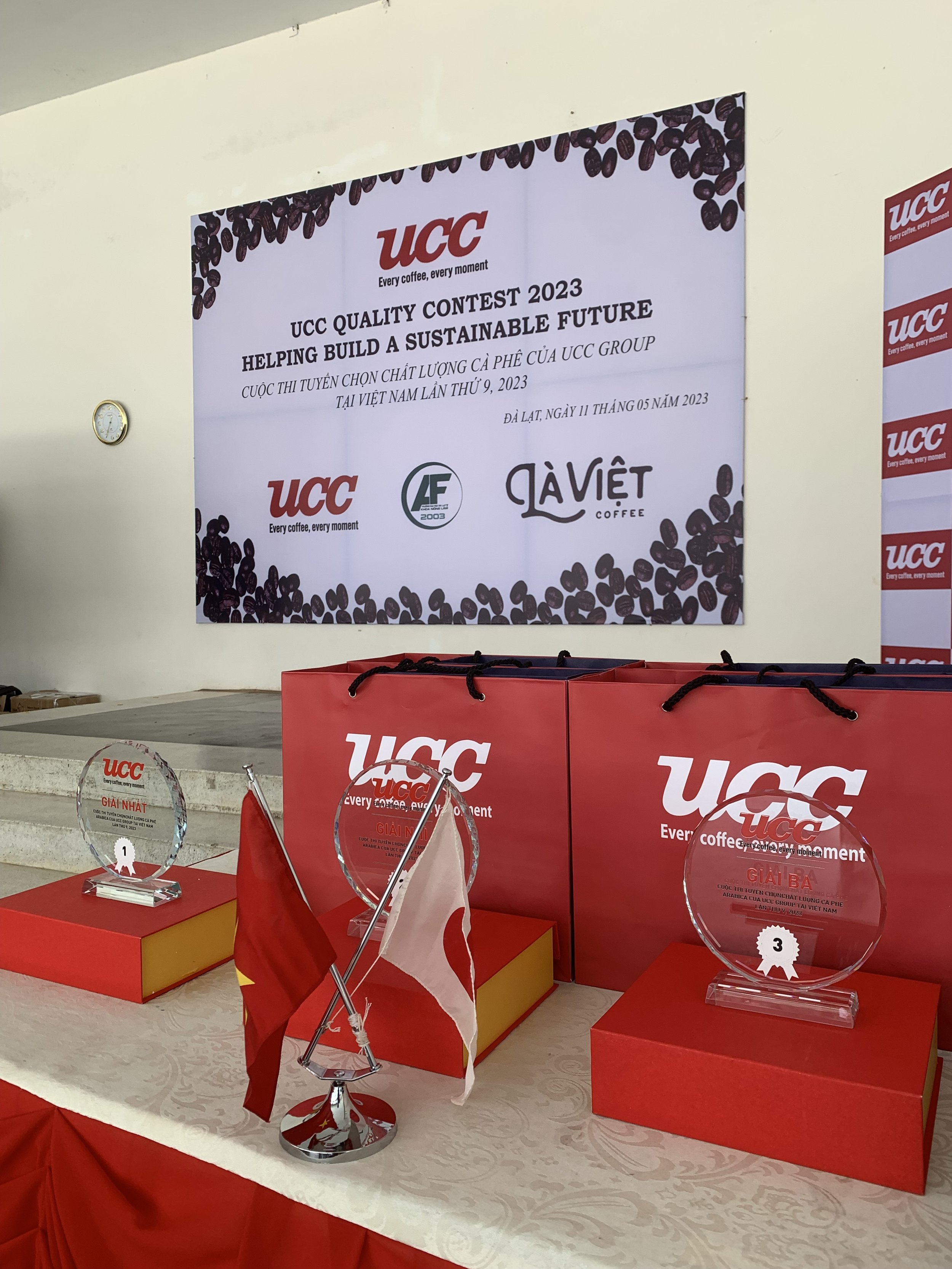La Viet-UCC Dalat Arabica Contest 2023
For 10 years, I’ve been involved in this event as a judge, providing support to the judging panel and organizers for nearly every event. It’s been a great way for me to “check in” with the quality improvements and growing community of producers in the area, a sort of snapshot of the Vietnamese specialty arabica segment, year after year. Several producers have shown themselves to be consistent finalists, with a desire to not only win but to produce the best coffee in Vietnam.
What most people ask me in regards to these events is “What did the winning coffee(s) taste like?” The first couple of years, it was an easy question to answer - mild, sweet, medium-bodied with malic acidity, with nutty qualities and a slight cornhusk-like finish. This is what would become known as the typical Dalat-area specialty arabica profile. Those who needed their coffee to be bombastic, full of wild flavor notes and tropical aromatics would nearly always respond with something like “that’s cool,” with no follow-up questions.
There were also some who were seemingly disappointed that there was no trace of similarity to nearby Indonesia’s typical arabica profiles (herbal, heavy, earthy - usually destined for espresso and diner coffee blends). If forced to make a simple comparison, I’d say that, based on what I’ve had since then up til now, that Vietnam’s best arabicas are closer to Central American coffees, like a classic Antigua regional blend or El Salvadorian bourbon. The flavor potential has expanded a lot over the last decade, with both a focus on variety/cultivar and modern processing techniques, in both regions.
The past 3 winners have exhibited very different flavors ranging from a classic Tanzanian washed arabica profile to a boutique Guatemalan microlot. The former would display ripe plums, molasses, and medium juicy body, and the latter would show as delicate, effervescent, and floral with silky body and white sugar sweetness. Some coffees had peachy notes, and others a caramel and milk chocolate-dominant profile. These coffees have been enough on their own for me to continue to expand my ideas of this region’s potential.
In the past few years, though, some disturbing (and totally normal for developing countries experiencing continuous positive growth) trends have begun to take place, and two of them are quite problematic for the sustainability of the arabica segment in Dalat. First, there’s been an extreme shortage of labor at harvest time - worker pay isn’t quite as competitive as it was in the past. Since I first started working in Dalat, the fresh flowers industry has taken a strong foothold. Worker pay in this segment is more than 50% higher, and laborers spend their days under cover of plastic greenhouses, out of the rain and on a small flat plot. Secondly, real estate values have gone through the roof, with some years experiencing a 300% increase over a few short months. When faced with the choice of making 100 years’ worth of cash with a single transaction (selling the farm) vs sticking it out for the love of coffee growing and minimal profit, it’s an easy choice. Thankfully, not everyone is interested in handing over their land rights to someone with plans to build a gaudy hotel or resort in the middle of their communities.
Mr Pham Ngoc Tuan, this year’s first place winner!
It’ll be friendly competitions like the UCC-La Viet arabica contest that keep the most passionate growers engaged and involved in coffee. The pride associated with doing excellent work, whatever it is, can be a better motivator than a giant payout to give it up. The producers who participate are a part of a community of coffee growers who want to preserve and develop what has been Vietnam’s best arabica region until now, as well as the forested farms that keep the area’s natural beauty and appeal intact. When this year’s winner was interviewed by a local TV station, he was asked if, after winning this year, he would consider entering the contest again, he said, “yes, I want to stay involved with this effort, but I hope one of my neighbors wins next year. Eventually, I want every farm in this community to have won first place at least once.” A 40-year veteran of arabica production from his early 20s, he’s managed to maintain his passion and make continuous improvements that he hopes to be able to share with his community. With no plans to retire from coffee farming, this win will raise his profile enough to help him to realize those goals.
Although I did participate in this year’s competition (as a judge), I didn’t take as many notes or pictures. I’ll share my thoughts in a brief, upcoming post.




